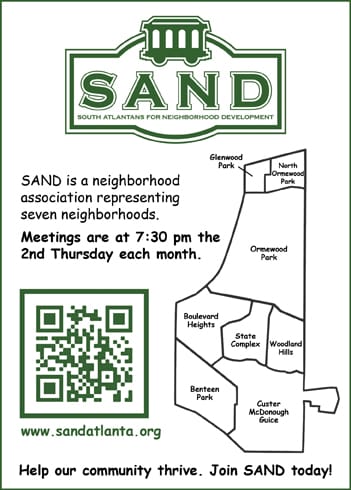By Saira Draper
I began the 2024 session hopeful we would pass some legislation to improve elections. But that optimism was quickly checked. As we approach the deadline for a bill to have passed at least one chamber to receive final passage—crossover day—I am seeing more legislation cast as solutions to problems that don’t exist and bills that only make things worse for Georgia voters.
It’s all under the guise of “increasing confidence in our elections,” which may sound honorable enough until you understand that the tradeoff for election security is often voting access. Striking the correct balance between security and access can be a challenge, but given that there is scant evidence of actual voter fraud in Georgia, I believe the pendulum is swinging too far in the wrong direction. And one more thing: there are people in Georgia who will never be convinced that the 2020 election wasn’t stolen, no matter what facts are presented to them. This is the wrong group to try and satisfy with legislation, but that is exactly what is being attempted; this small but loud contingency is currently driving much of the election policy decision making at the Capitol.
Here are just a few examples of election legislation that could make it to the Governor’s desk this year.
Republican-backed Senate Bill 221 would eliminate automatic voter registration. For years, Georgians have been able to register to vote or to update their voter registration information when they renew or apply for a drivers license. Automatic voter registration has meant the state was registering close to 100 percent of eligible Georgia voters. The positive impact of automatic registration became even more obvious two years ago when a change in the Department of Driver Services’ computer system inadvertently removed the automatic registration feature. Some counties saw a 79 percent drop in registrations. Automatic registration not only makes registration easier for voters, it also sends high quality, updated voter registration data to counties, making our voter rolls more accurate. Even though eliminating it would undermine Republicans’ stated goal of keeping our voter rolls “clean,” that seems to be a trade off the sponsors of SB 221 are willing to make if it also means registrations are slashed.
Another disaster-in-the-making proposal in SB 221 would make it easier to challenge a voter’s right to be on the rolls. Currently the law allows any county resident to bring an unlimited number of voter challenges against unsuspecting voters. We’ve seen this law grossly abused since 2020, with challengers bringing thousands of meritless voter challenges at a time. Even when the challenges fail to remove voters from the rolls, there is a chilling effect on targeted voters, a harassment factor, and election workers can become bogged down by the administrative burden of processing the challenges. SB 221 would make things worse by making it easier for a challenger to remove voters from the rolls, sometimes due to technical errors that are no fault of the voter. For example, SB 221 says a challenged voter can be removed from the rolls if their birth year is missing or invalid on registration information. This is despite a well known fact that many older voters, registered under a prior system, are coded as birth year “1900” in the registration database. SB 221 would also make it so a challenged voter can be removed from the rolls simply because a person with the same name is on the National Change of Address database maintained by the U.S. Postal Service; the mere presence of a name is sufficient to sustain the challenge and no verification is necessary. Meanwhile, I am trying to take the law allowing unlimited voter challenges in another direction. My bill, HB 1254 would allow elections offices to recoup some of the cost of processing and researching voter challenges. It is patterned after the Georgia Open Records Act in that the first 15 minutes are free but after that the county can bill for its administrative costs. There’s still time for my language to be incorporated into an existing bill if Republicans have an interest in allowing a path for good faith challenges while deterring mass meritless challenges.
But it’s not all bad news. There is movement in some legislation that would help voters, too. I introduced House Bill 559 last year to take the wait time guessing game out of voting for parents with babies and toddlers. The bill would allow parents with children 5 years and younger to move to the front of the line at polling places, just as we already do for the elderly and the disabled. It’s a pro-voter, pro-family piece of legislation with bi-partisan support. The bill has passed the committee stage on both the House and the Senate, and I’m hopeful it will continue moving through the legislative process.
The House has approved a bill I’ve co-sponsored, House Bill 1207, to allow candidates to review drafts of ballots for accuracy before they are finalized and printed. It’s a simple way to cut down on errors before voters start voting. Candidates would have 24 hours to get back to election officials with any corrections. Had this bill been in place last November, we could have avoided a situation where a school board race was inadvertently left off the ballot in parts of House District 90.
Things look good for House Bill 1118, which I proposed to support our election and poll workers who are fearful and vulnerable in today’s political atmosphere of hate and violence. It is co-sponsored by my friend and colleague Rep. Tanya Miller. HB 1118 expands existing protections to more categories of election workers, and protects workers’ personal information from disclosure. It also creates a reporting mechanism so that policy makers are aware of the threat levels, and can calibrate policy solutions to concrete data. Supporting our front line democracy workers should be something we all care about, and I’m happy to say I have bipartisan support for this bill.
We agree sometimes with our friends across the aisle. But often we do not, especially when it comes to the political nature of elections in a purple state. My fellow Democrats and I don’t have all the answers. And I know that many of my GOP friends have good ideas and want to make things better. But I think it’s unfortunate and damaging for Georgians, however, when it’s politics that decides which bills become law and which bills end up in the dustbin without ever being considered.
Please contact me if you have thoughts or concerns. I can be reached at 404-656-0265 or saira.draper@house.ga.gov. My office is 604-D in the Coverdell Legislative Office Building across the street from the south end of the Capitol.
Saira Draper is an attorney, voting rights expert, and the State Representative for Georgia House District 90.







